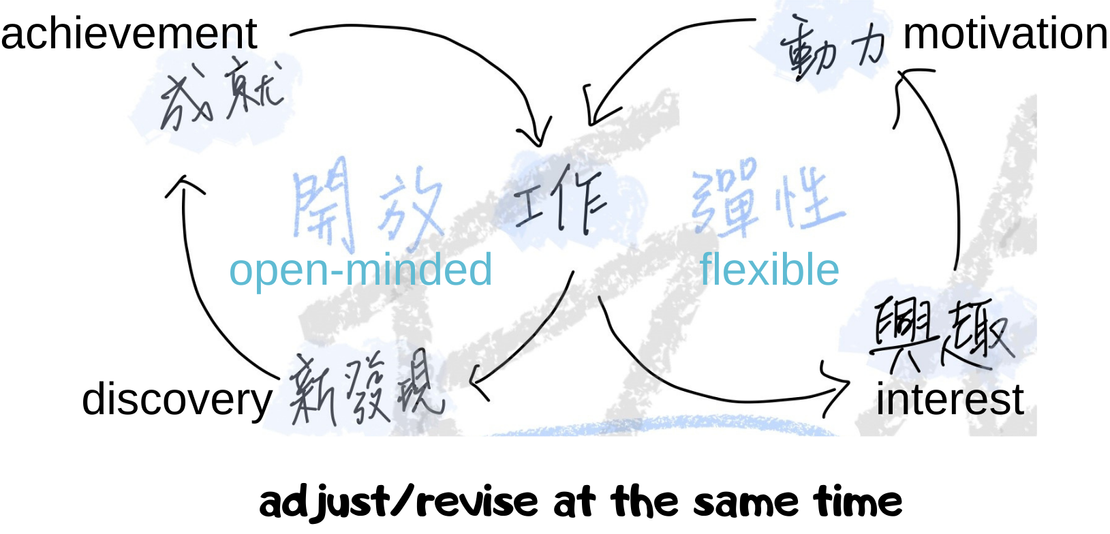Learning Attitude and Work Model
1. Self-learning
How to self-learning?
There are 3 simple steps you can follow:
Step 1: Finding your passion.
- Make a list of things you love to do
- Assess the things you don’t love
Step 2: Finding learning resources.
- All of the useful things are your learning tools. E.g. textbooks, software and videos from library, internet or mobile.
- And the people you know are your teachers. Like your parents, neighbors, classmates, and friends who are around you.
Step 3: Motivate yourself to keep going.
We all lose motivation from time to time. There are some tips to get yourself back on track.
- Remember your “why.”
- Do some mood lifting.
- Change your environment.
2. Independent work and teamwork
Independent work
Working independently is the ability to work self-sufficiently (meaning: able to maintain oneself without outside aid) on assigned tasks.
Your supervisor or management can trust you to accomplish tasks with little to no supervision.
Working independently can involve a sense of responsibility and self-reliance (similar: self-sufficiency) as you work to finish projects and assignments.
Teamwork
Building a team involves bring people together, while teamwork is allowing those people to use their different abilities, values and beliefs to accomplish something they may not be able to do alone.
Teammates who trust each other can feel safe communicating openly and effectively.
When everyone contributes equally to solving a problem or creating something new by offering unique skill set or expertise.
3. Summary: growth mindset
The term growth mindset was coined by American psychologist Professor Carol Dweck in her book Mindset: The New Psychology of Success.

Source of the materials by myself.
關於Neomi
大學讀中國文學系,撰寫本文時在新加坡實習社會工作。這是一份報告的講綱,發布僅供個人紀錄與學習參考用,請勿轉載內文或任何圖片、請勿轉載內文或任何圖片、請勿轉載內文或任何圖片。謝謝諒解。
因工作與學業,方格子的更新頻率比較低,談及的面向也會更多偏向社會福利與心理分析,而非文學討論。
感謝在此停留的每一位朋友。